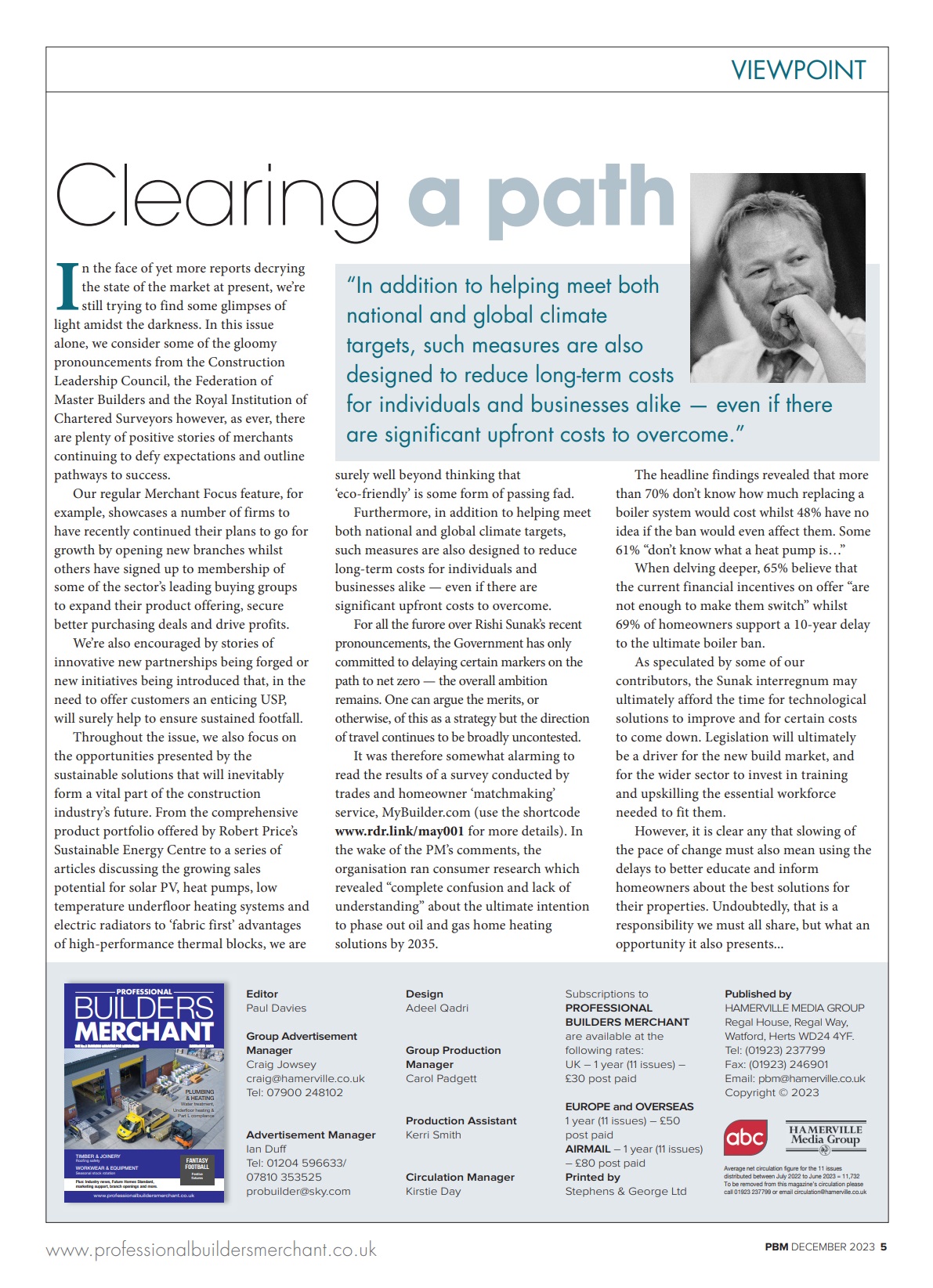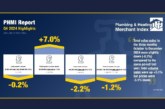
With a focus on the need to grow the market for sustainable solutions, Editor Paul Davies uses his column in the December issue of PBM to cut through the latest reports of construction sector doom and gloom.
In the face of yet more reports decrying the state of the market at present, we’re still trying to find some glimpses of light amidst the darkness. In this issue alone, we consider some of the gloomy pronouncements from the Construction Leadership Council, the Federation of Master Builders and the Royal Institution of Chartered Surveyors however, as ever, there are plenty of positive stories of merchants continuing to defy expectations and outline pathways to success.
Our regular Merchant Focus feature, for example, showcases a number of firms to have recently continued their plans to go for growth by opening new branches whilst others have signed up to membership of some of the sector’s leading buying groups to expand their product offering, secure better purchasing deals and drive profits.
We’re also encouraged by stories of innovative new partnerships being forged or new initiatives being introduced that, in the need to offer customers an enticing USP, will surely help to ensure sustained footfall.
Throughout the issue, we also focus on the opportunities presented by the sustainable solutions that will inevitably form a vital part of the construction industry’s future. From the comprehensive product portfolio offered by Robert Price’s Sustainable Energy Centre to a series of articles discussing the growing sales potential for solar PV, heat pumps, low temperature underfloor heating systems and electric radiators to ‘fabric first’ advantages of high-performance thermal blocks, we are surely well beyond thinking that ‘eco-friendly’ is some form of passing fad.
“In addition to helping meet both national and global climate targets, such measures are also designed to reduce long-term costs for individuals and businesses alike — even if there are significant upfront costs to overcome.”
Furthermore, in addition to helping meet both national and global climate targets, such measures are also designed to reduce long-term costs for individuals and businesses alike — even if there are significant upfront costs to overcome.
For all the furore over Rishi Sunak’s recent pronouncements, the Government has only committed to delaying certain markers on the path to net zero — the overall ambition remains. One can argue the merits, or otherwise, of this as a strategy but the direction of travel continues to be broadly uncontested.
It was therefore somewhat alarming to read the results of a survey conducted by trades and homeowner ‘matchmaking’ service, MyBuilder.com. In the wake of the PM’s comments, the organisation ran consumer research which revealed “complete confusion and lack of understanding” about the ultimate intention to phase out oil and gas home heating solutions by 2035.
The headline findings revealed that more than 70% don’t know how much replacing a boiler system would cost whilst 48% have no idea if the ban would even affect them. Some 61% “don’t know what a heat pump is…”
When delving deeper, 65% believe that the current financial incentives on offer “are not enough to make them switch” whilst 69% of homeowners support a 10-year delay to the ultimate boiler ban.
As speculated by some of our contributors, the Sunak interregnum may ultimately afford the time for technological solutions to improve and for certain costs to come down. Legislation will ultimately be a driver for the new build market, and for the wider sector to invest in training and upskilling the essential workforce needed to fit them.
However, it is clear any that slowing of the pace of change must also mean using the delays to better educate and inform homeowners about the best solutions for their properties. Undoubtedly, that is a responsibility we must all share, but what an opportunity it also presents…










